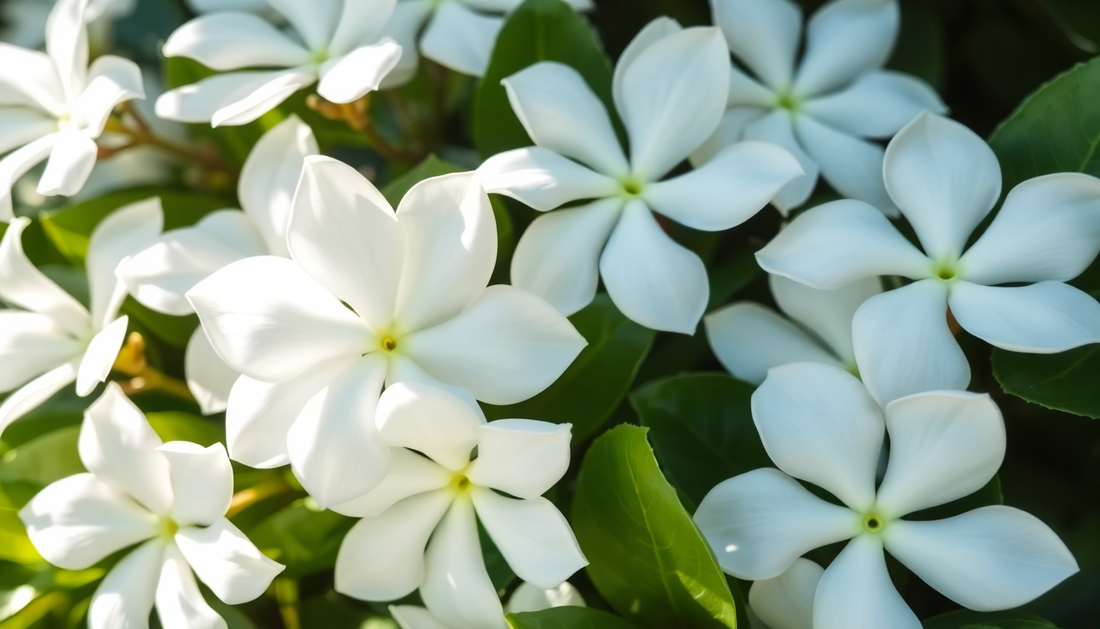
Why Are My Jasmine Flowers Not Fragrant?
Jasmine flowers are renowned for their captivating fragrance, which can fill the air with a sweet, intoxicating aroma. However, sometimes gardeners may find that their jasmine plants are not producing the expected level of fragrance. This can be frustrating, as the alluring scent is a key reason many people choose to grow jasmine.
In this blog post, we'll explore the common reasons why jasmine flowers may lose their fragrance, and provide tips on how to restore the plant's aromatic properties. Whether you're a seasoned jasmine grower or just starting out, understanding the factors that influence jasmine flower scent can help you enjoy the full beauty and fragrance of this beloved plant.
Factors Affecting Jasmine Flower Fragrance
There are several key factors that can impact the fragrance of jasmine flowers. By understanding these, you can take steps to ensure your jasmine plants are thriving and producing their signature scent.
Environmental Conditions
The environment in which the jasmine plant is grown plays a significant role in its fragrance production. Jasmine prefers warm, humid conditions with plenty of sunlight. If the plant is exposed to extreme temperatures, either too hot or too cold, this can inhibit its ability to produce fragrant compounds.
Likewise, if the soil moisture levels are not properly maintained, the plant may become stressed, which can also reduce fragrance. Jasmine does best with consistently moist, well-draining soil.
Plant Maturity
Younger jasmine plants may not produce as much fragrance as more mature specimens. It can take a few years for a jasmine plant to reach full maturity and develop its maximum scent potential. Be patient with young plants, and focus on providing them with the right growing conditions to support their development.
Pruning and Maintenance
Proper pruning and maintenance of the jasmine plant is crucial for maintaining fragrance. Overgrown or neglected jasmine plants are less likely to produce abundant, fragrant flowers. Regular trimming, deadheading, and removal of any diseased or damaged foliage can help keep the plant healthy and encourage robust flower production.
Nutrient Deficiencies
If the jasmine plant is not receiving the right balance of nutrients, this can impact its ability to synthesize the compounds responsible for its signature scent. Ensure the plant is getting adequate amounts of essential nutrients like nitrogen, phosphorus, and potassium through fertilization or compost application.
Pests and Diseases
Infestations of pests like aphids or diseases like powdery mildew can stress the jasmine plant and disrupt its normal physiological processes, including fragrance production. Regularly inspect the plant for any signs of problems and take swift action to address them.
Restoring Jasmine Flower Fragrance
If your jasmine plants have lost their fragrance, there are several steps you can take to help restore their aromatic properties.
Optimize Growing Conditions
Ensure the jasmine plant is receiving the right amount of sunlight, water, and nutrients. Move the plant to a sunnier location if needed, and maintain consistent soil moisture levels. Apply a balanced, slow-release fertilizer to provide the plant with the nutrients it requires.
Prune and Deadhead Regularly
Regular pruning and deadheading of spent flowers can help stimulate new, fragrant flower growth. Be sure to use clean, sharp pruning tools and remove any diseased or damaged foliage.
Provide Additional Support
Consider adding a trellis or other support structure to help the jasmine plant grow upright and encourage more flower production. This can also improve air circulation around the plant, which can enhance fragrance.
Be Patient and Persistent
Restoring jasmine flower fragrance may take some time and effort. Be patient and persistent in your care, and you should start to see improvements in the plant's scent over time.
Conclusion
Jasmine's captivating fragrance is a key reason why many gardeners choose to grow this beautiful plant. However, if your jasmine flowers are not as fragrant as you'd like, don't be discouraged. By understanding the factors that influence jasmine flower scent and taking the appropriate steps to address any issues, you can help restore the plant's aromatic properties and enjoy the full beauty of this beloved flowering plant.
Whether you're a seasoned jasmine grower or just starting out, the tips and insights provided in this blog post can help you cultivate thriving, fragrant jasmine plants that will delight your senses for years to come.







No comments